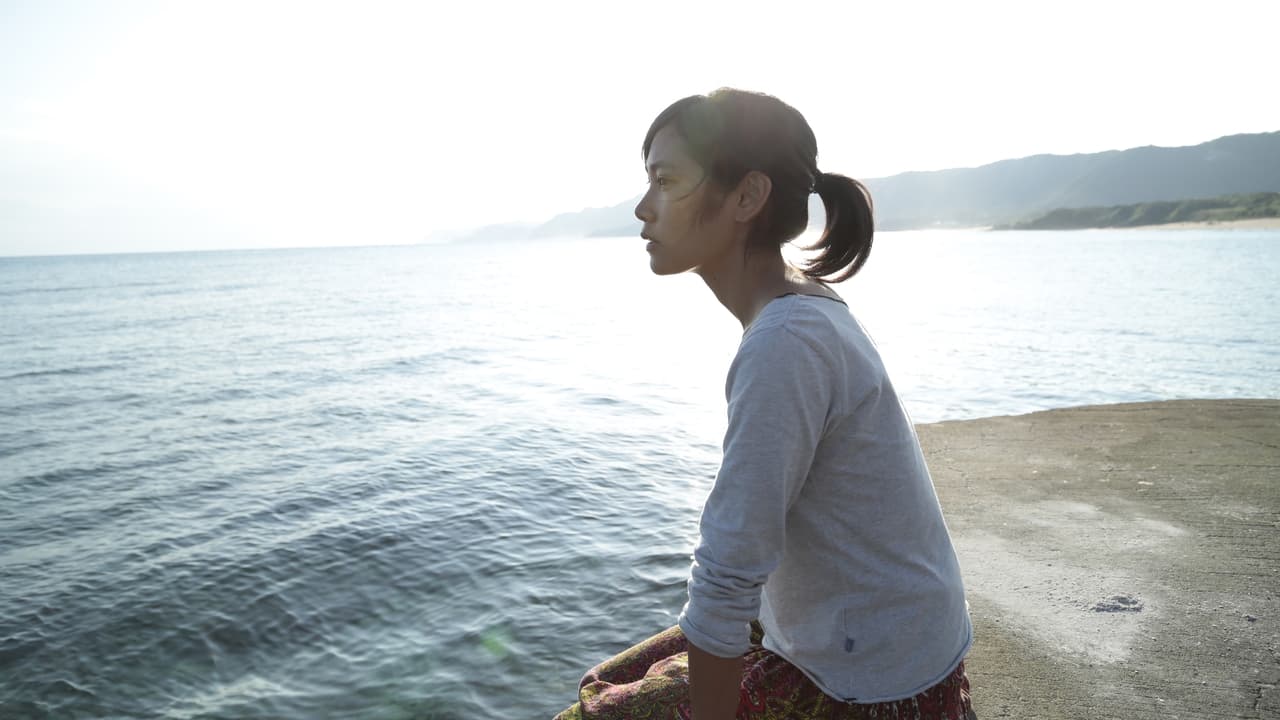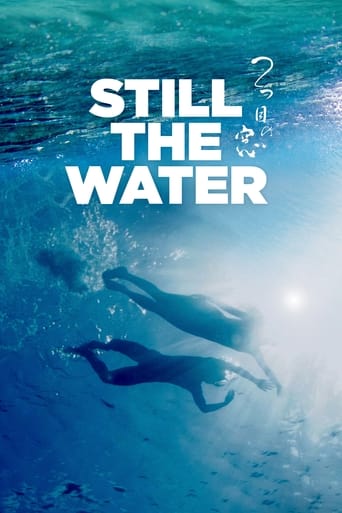Fairaher
The film makes a home in your brain and the only cure is to see it again.
Arianna Moses
Let me be very fair here, this is not the best movie in my opinion. But, this movie is fun, it has purpose and is very enjoyable to watch.
Matylda Swan
It is a whirlwind of delight --- attractive actors, stunning couture, spectacular sets and outrageous parties.
Payno
I think this is a new genre that they're all sort of working their way through it and haven't got all the kinks worked out yet but it's a genre that works for me.
Paul Magne Haakonsen
As much as I enjoy Asian cinema, it does happen every now and then that an unimpressive and boring movie surfaces. And "Still the Water" (aka "Futatsume no mado") happened to be one such movie.The movie is set up for being potentially a great story, with the story revolving around the cycles of life, death and love, as seen from a teenage couple's point of view. And the fact that it takes place on a subtropical paradise Island just bolsters the possibility of it being great.However, director Naomi Kawase butchered everything that could possibly been a good movie.I managed to sit through 25 minutes of "Still the Water" before I had to give up out of sheer and complete boredom. Nothing, and I do mean literally nothing had happened in those 25 minutes. And I had no desire whatsoever to continue on watching the story, as it was highly unlikely that the movie would change pace and change character. No, this was just too much of a snoozefest as told by the director.The acting in the movie wasn't particularly outstanding. Now, I am not saying that the cast didn't perform well, because they did perform adequately, I would say. It is just that no one was outstanding and no one left a memorable impression with their performance. And I am sure that it is to blame on the script and the writers, because the characters lacked personalities, quirks, traits and could essentially have been dolls instead.There was an abundance of beautiful things to look at in the movie, in the sense of location and shots. But a movie can't sustain itself on visual grace alone.There is no chance of me returning to finish the rest of the movie, because it just lacked anything even remotely appealing and interesting. And it just goes to prove that not everything in the Asian cinema is a grand and glorious experience.
amalfonso8
The Blue Lagoon meets Descendants. It's a beautifully filmed feature, about life, death, love, and the natural beauty of the island. It is also about loss, resilience, sacrifice, and preservation in the face of change. It is also a coming of age drama just as much as a romance. A little slow in some area, made up for by the lingering shots on the island. Restrained acting of parents such as Makiko Watanabe, Tetta Sugimoto, and Miyuki Matsuda in the film make your heart break. Reminds viewers there is more to Japan than Tokyo. Would have liked to learn more about the Island life, for example, is it based on tourism with tensions between tourists who come in for a few days and leave? Would have fleshed out the parent characters a little more. Spoiler Alert: there is an ending scene that should have been cut or totally omit in my opinion since it does not convey the intended message. Still worth a nine out of ten stars.
jlrousse04
No, the last film of Naomi Kawase, internationally known as "Still the water", is not a film reserved to "intellectual people", as I heard recently. If we refer to "Last year at Marienbad" (Resnais-1961) as a film for"intellectual people", we find no common point, except slowness of the rhythm. The spectator should only follow the example of the female heroin, Kyoko, who, in one scene at the beginning, dives into the sea with all her clothes (except her shoes), and enjoy this bath, meeting joyfully with the old-fellow fisherman, "PapyTortoise".Following her example, we, spectators, should dive into the film, and enjoy the play of sunlight across the branches of the old banyan, just in front of the terrace of Kyoko's house; enjoy the meals lovely prepared by Kyoko's father (so much different from the meals eaten in a restaurant at Tokyo by Kaito, Kyoko's lover, and his father; and completely opposed to the food left by Kaito's mother in the refrigerator); enjoy even the soft departure of Isa, Kyoko's mother, after a long illness, among songs and dances.I love so much this warm celebration of la joie de vivre, typically a Japanese one, as, after each disaster, typhoon, earthquake or tsunami, we see Japanese people build again, with a strong faith in life, all that has been destroyed.
slabihoud
What a pleasure! Seldom does a film touch on so many important questions, THE important questions I would say, with so much taste and grace and easiness. Seen through the eyes of two 16 year old teenagers we get to know two families, both in trouble, one dying parent, one split marriage and how each kid reacts to the situation. And this is reflected in the friendship and blossoming relationship between the teenagers. Questions of endless love and the believe of a life after death are raised and form the central drive of the story.The film is almost two hours long but for these questions you definitely need time to feel and tell. There is no wrong sentence or behavior in this movie, it is a quiet film with many silent moments where you have a chance to look and think. Something very rare nowadays. The overall feeling is a very positive one and you leave the film with hope and joy!

